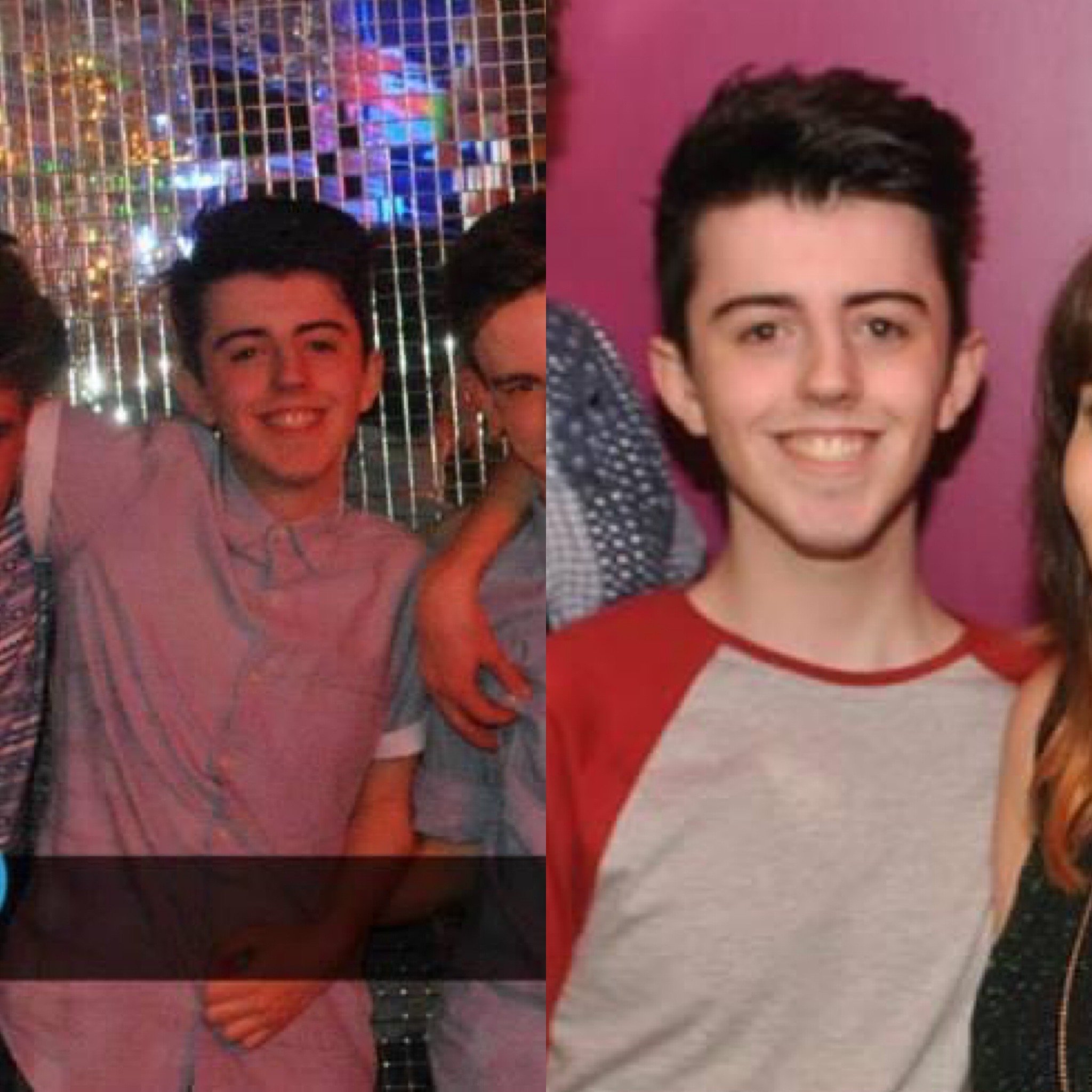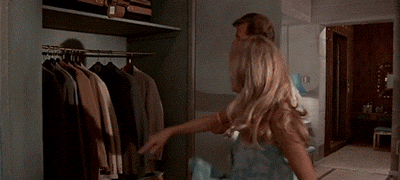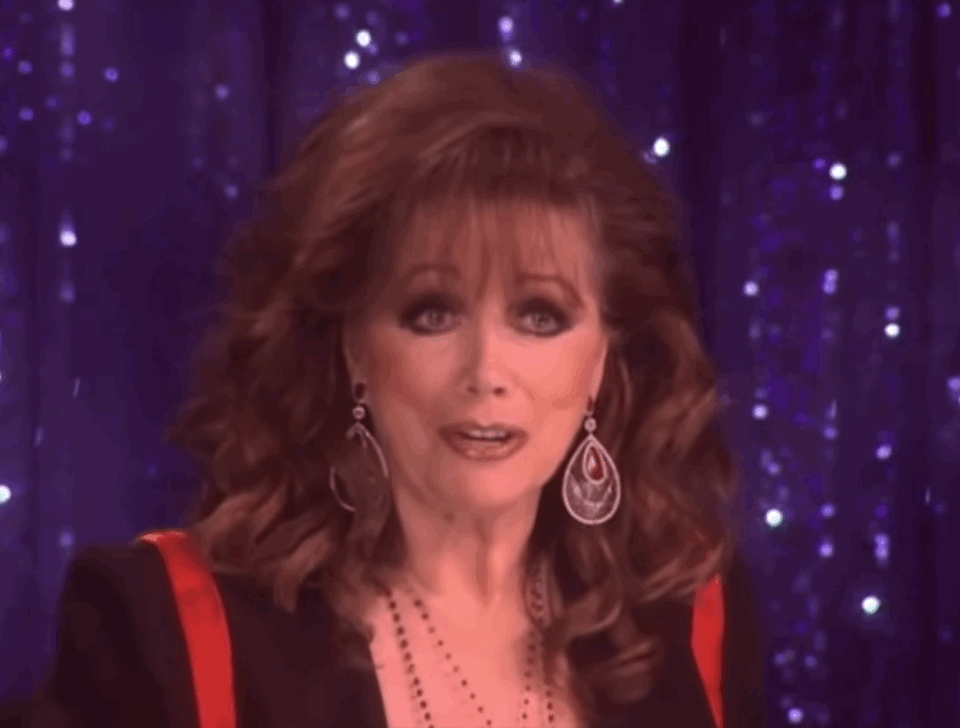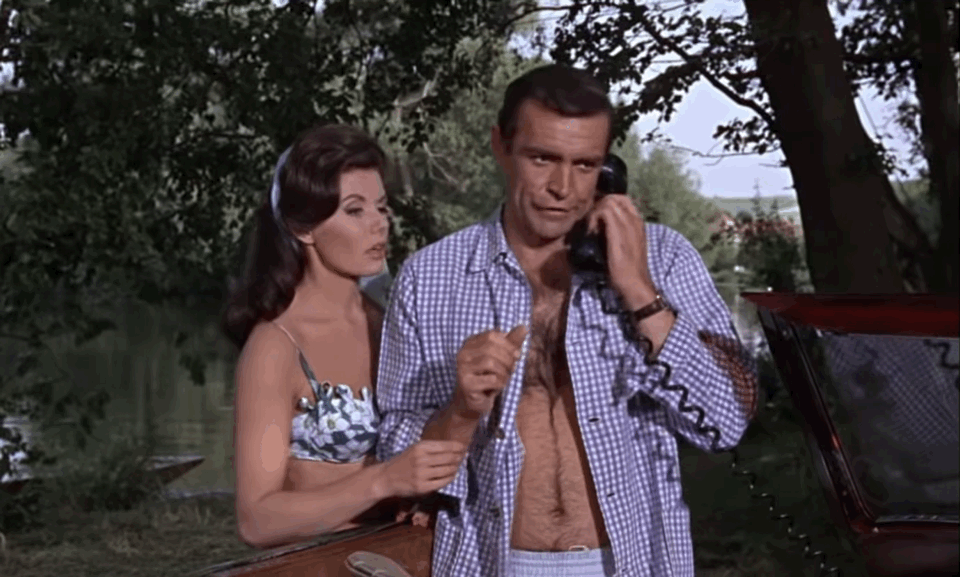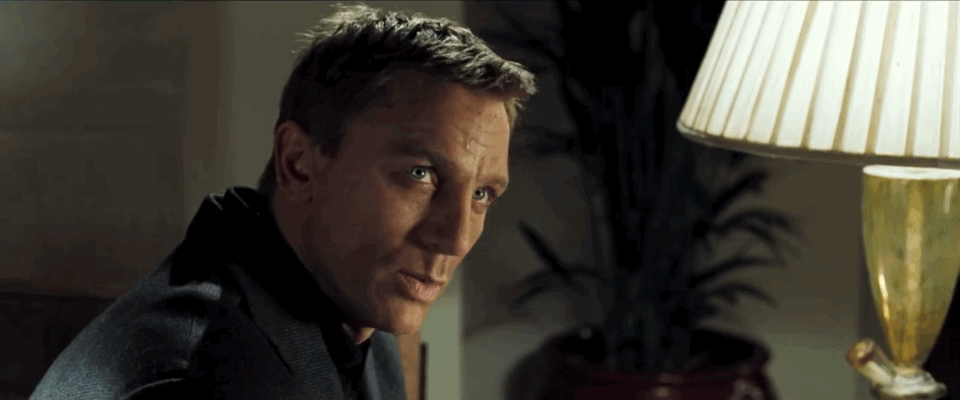The Bond Sexperience: please be advised!
Bond’s bed-hopping puts him more in sync with gay men than straight men - or so the stereotypes would have us believe. Sam Rogers takes an honest and funny look back over his love life to date, drawing parallels with Bond’s.
Sex. An integral part of James Bond’s character. A chance for Bond to utilise his sexuality to either gain information from women, to enjoy his personal time with someone he truly cares about or to escape the world of spying and experience pleasure without strings. The latter is used to good effect MANY times throughout the series with Bond happily winding down with a massage from Dink in Goldfinger or developing his skills to become a professional cunning linguist with Professor Inga Bergstrom in Tomorrow Never Dies. This makes a lot of sense for a person like Bond whose work is extremely taxing: emotionally, mentally and physically! Even with the Craig era of films somewhat subverting the trope of Bond being an expert womaniser who casually sleeps around, he still manages to maintain his sexuality (whether it’s for business or pleasure).
Most people around the world have sex. Whether they’re first-timers, experimenting, in committed relationships, open relationships, sex after marriage, etc and so this topic is open to many. However, speaking from my perspective as a homosexual, I feel that gay men are generally more in sync with the type of sexual lifestyle that James Bond has, more so people with other gender or sexual backgrounds.
For many fans, the bachelor element of the James Bond lifestyle may appear to be something to aspire to: fun without commitment. This is definitely an idealistic aspiration for many. Going through life in total control of what you do and who you d…er, have relations with can be seen as rather empowering. While there are reasons as to why people could look up to Bond and his lifestyle, it’s important to take stock of why his lifestyle isn’t healthy and why he lives like this, which in turn might make people re-evaluate this kind of lifestyle.
Queer as Bond
The re-introduction to Bond after his ‘death’ in Skyfall showcases his relationship with women and alcohol which seems very similar to gay men in Manchester going to the famous Canal Street in the gay village, knocking back a few drinks, pulling a guy, doing the walk of shame, rinse and repeat!
Speaking from experience, going to Canal Street at 18 after seeing it appear on the ground-breaking classic TV show Queer As Folk was a transformative moment for me and I’m sure this was the same for thousands - potentially millions - of over gay men over the past few decades (see these two lovely images of me a fresh-faced 18 year old, the left picture literally taken on my 18th birthday and my first time in the gay village, RIP Baa Bar).
[As a sidenote, I would highly recommend Queer As Folk to anyone who hasn’t seen it. This includes the original UK and US television series which would end up being very different from each other but both still equally as entertaining. Being from Manchester I do have a soft spot for the UK version, although I was once told that I had a resemblance to Littlefinger from Game of Thrones aka Aiden Gillen aka Stuart from Queer As Folk, so I feel very weird watching his scenes in the show now! End of sidenote haha.]
Canal Street, located in Manchester in the UK is a great way for LGBTQ+ individuals to gain the confidence they need to put themselves out there and meet people, as well as to learn more about the community and take part in local LGBTQ+ charities. Of course it isn’t all sunshine and rainbows: it can be a bit cliquey and, like in most places, there are some people who take advantage of those who are more vulnerable or maybe new to the scene (there’s a story about a guy on stilts rubbing one of the stilts over my back whilst I was sat outside talking to friends when I was 18…it was weird haha). But overall it allows people to become comfortable and gain confidence, which is something that they may not have had when in areas/bars with an overwhelming number of heterosexuals who could take propositions or conversations the wrong way!
Although I haven’t been to Canal Street since the start of the pandemic, I have had many wonderful experiences in the gay village including my first Pride (highlights being Ian McKellen’s speech and performances by Dannii Minogue and Sarah Harding RIP), being given fake boobs and a wig to put on by a random drag queen, coming out to some of my closest friends at G-A-Y, performing the full ‘Who Do You Think You Are’ dance routine and even meeting a guy who I would end up having a date with who was wearing a panda costume for some form of bar promotion!
Over time, tides have shifted, and as more homosexual relationships are showcased through various different media outlets, I believe that public perception of relationships is beginning to change for the better. Unfortunately, I believe that we still live with the spectre of the 80s AIDs epidemic which brought about many negative reactions and perceptions from the public, heavily affecting how gay men were treated and thought of. Due to these perceptions, it seems to make sense why the perceived notion that gay men are purely promiscuous is a view that many agree is the case. These perceptions have evolved over the last three decades but there’s still much more work to do for people to truly understand the developments in medicine and health care that allow all people who contract HIV to live happy, healthy lives (see, for instance, the U=U campaign).
I’m lucky that I haven’t received many pointed thoughts and opinions about my own relationship status and sex life. However, one negative experience that I recall is that I was called a “slut” by someone after telling them that I was dating someone almost double my age when I was 22. Despite them knowing that I was exclusively seeing this person, that was the word they chose to call me, which was quite hurtful, especially as it was used so easily. Since this situation occurred, I have spoken to this person who has understood why this wasn’t right and has apologised, so in the long run there’s no real harm done. However…what made them go for that word specifically? “Slut” is traditionally a word used to describe women who have casual sex with more than one partner. It’s used in a derogative fashion, and, although the same can be applied to men, the word is still mostly associated with women. Over the last two decades especially, it appears that gay men who have an active sex life are now called sluts a lot more due to public opinion of gay men’s promiscuous lifestyles as well as the knowledge of high-profile gay “meet-up” applications such as Grindr, along with the multitude of other gay dating websites.
If anyone is ever in a position like this where they are looked down upon because of their apparent sex life/relationship status then keep in mind, 1. It’s your business, not theirs; 2. If you are happy, safe and are not hurting anyone then it doesn’t matter what people think or say; and 3. You are allowed to make your own decisions and potential mistakes, it’s how you grow!
Sleeping around… so what?
“I make no apologies for how I chose to repair what you broke. You don’t get to call me a whore.” – Ellen Pompeo as Meredith Grey, Grey’s Anatomy
This line from Grey’s Anatomy (which is still going strong to this day) is effectively used by Meredith Grey who chastises her ex-boyfriend and professional superior, Derek “McDreamy” Shepherd, who has essentially called Meredith a whore for sleeping around following their breakup. Derek positions Meredith as being less than by sleeping with multiple men despite the fact that, when they were dating, he didn’t tell her that he wasn’t divorced. He then chose not to sign divorce papers and went back to his ex-wife Addison Montgomery Shepherd (talk about an iconic character). I think it’s a strong, powerful statement, coming from a woman who has been hurt repeatedly since childhood to the point where she refuses to be the victim or ‘villainised’ by someone who wronged her in such a way. In my mind I can imagine Vesper surviving the events of Casino Royale and jokingly calling Bond a whore or a slut for sleeping around and, if he was inclined to, I could easily see him having a similar response.
And in many ways, James Bond is a ‘slut’. He has casual sex with numerous partners (sometimes during the same day/night) and moves on from most without so much as batting an eyelid. The women in the Bond films are usually chastised for being promiscuous (questionable when they are only shown being interested in Bond), but it isn’t an accurate perception, especially when Bond is literally sleeping with any woman that he can! I recently watched Calvin Dyson’s Queer Characters in James Bond Films video with Licence To Queer’s very own David Lowbridge-Ellis where the two discussed how Roger Moore’s era of Bond had the least overt queer characters and themes yet is regarded as the most camp.
Of course, queer and camp are not mutually exclusive but it’s important to add that Moore’s Bond is probably the sleaziest (at least in his first two films) with him sleeping with multiple women within the space of 24 hours! Two glaring examples includes Bond having sex with Rosie Carver, seeing her dead body minutes after and then, later that day, tricking Solitaire into sleeping with him (taking her virginity) in Live And Let Die. Whilst in The Man With The Golden Gun he says to Goodnight that her “turn will come” immediately following his two hour tryst with Andrea Anders! Although I’m sure many at least recognise that this isn’t the most well-adjusted way of acting, I’m sure there are some that defend Bond 100% and say that he’s just a womaniser…which is true, but there’s so much more here than that.
Use or be used
“A woman begins her young adult life being soft, loving and giving. Then what it all comes down to finally is use…or be used.” – Joan Collins as Alexis Carrington Colby (Morell Dexter Rowan), Dynasty
I’ve heard this above quote from 80s juggernaut Dynasty several times, a rare moment of reflection and sincerity from one of television’s biggest bitches, Alexis Carrington Colby. Of course, she is talking about her own life, her innocence when she was younger and that, in the present day, after a significant amount of time has taken place, she knows that she needs to be in control so that she won’t be used and hurt again. This can be attached to many people but especially to Bond himself and to gay men.
I can speak a bit more for myself when it comes to this quote relating to gay men but I can honestly say that, as a teenager, I hoped and dreamed that I would find a man, fall in love and live happily ever after. As Joan Collins’ sister Jackie Collins said on an episode of RuPaul’s Drag Race (season two, episode seven) “it’s very naïve”!
Of course, upon actually meeting men and having experiences, whether that’s dating, sex or just speaking with more experienced members of the community, you are quick to realise that for most of us, this isn’t instantly achievable (#StillHoping). During my late teens and early 20s, I did date a healthy amount and gained a lot of wisdom and knowledge, although at times, certain situations were uncomfortable to be in and I also had one or two heartbreaks. As awful and painful as some of these experiences are, you gain something from every single thing. It’s always important to remember that. You get a thicker skin, you learn and you grow and I predict that many gay men can relate to this and have grown significantly from their first experiences until now.
Although Bond as we know him has never seemed entirely naïve and innocent, we can see in Casino Royale (2006) that a younger Bond can make numerous decisions (right and wrong) and fall for someone he potentially shouldn’t have. What he does do from going through these experiences is learn and grow. He becomes the Bond that we know and love and, as he develops, his attitude and lifestyle develops. But this isn’t always for the better.
Bond has power, and occasionally he will use this to his advantage, whether we as an audience truly believe that he’s right or wrong. His character is one who has repeatedly lost things, family and lovers who we’ve seen or just heard references to, to the point where there are few recurring figures in his life, almost all being related to his work. He chooses this life, these people to be around and though I may not totally agree with how he conducts himself when it comes to forming his relationships and experiences with women, I understand (mostly) why he does it. He chooses to use rather than be used. His reaction to Madeleine’s apparent betrayal in No Time To Die speaks volumes as he immediately (following a detour courtesy of SPECTRE) puts her on a train and out of his life. He was stripping himself of his armour. The moment that trust was broken, he put the armour back on and moved forwards alone.
Gay men, especially in the Western world, generally have a considerably easier time in traversing through life than in the modern day compared to many people worldwide. This is of course an extremely broad statement and I understand that many still face atrocities daily from strangers and from their own families (which I believe is worse). Again, I have to state that I feel extremely lucky and grateful to have a supportive network of family and friends who didn’t shut me out or attack me in any way when I came out. However, many don’t have that luxury and I know that, in the past, this was more of a rarity. Historically, homosexuals have been ostracised, losing family through choice (to escape abuse) or through force (being kicked out of their lives), lovers through choice (promiscuity to avoid further heartbreak) or through force (death in homophobic attacks or through HIV/AIDs), and had to build their own family and lifestyle to combat the oppression that has fought against them living.
Sound familiar? Whilst the background context of the stereotypical lifestyle of Bond and gay men are so very different, the actions of both are quite paralleled. We take control of our lifestyle and choose to not be out of control and used. Well, some I’m sure would prefer that - which is totally fine!
No Shoes, No Shirt, No Problems (No Strings)
Being perpetually single can be viewed as the best and worst thing for a person. But what does this mean for Bond? Which elements of his life are affected by being single?
Once again, sex…and lots of it. Of course, casual sex with multiple partners isn’t exclusively for single people and with many relationships expanding to become throuples or open, the idea of relationship = monogamy isn’t as set in stone as most would like to believe. However, the positive thing for Bond about being single is that the only person he has to worry about is himself, as long as he knows that his feelings won’t get hurt then he can do what he likes and who he likes. Although he has a conscience and reflects on his life, he is very comfortable being a bachelor. And, whilst occasionally being more romantic with some women than others (compare the treatment of Melina or Kara versus Patricia or Pussy for example), it’s difficult to imagine Bond catching strong feelings for many of his partners!
Dedication to the job in hand. Bond’s work sees him in a number of dangerous, death-defying situations dealing with everyone from determined drug dealers to vicious super villains with many of Bond’s inner circle of allies being caught in the crossfire. As seen in Casino Royale, On Her Majesty’s Secret Service and No Time To Die, when Bond is in a relationship, he goes to resign from the service, unwilling to keep fighting for Queen and Country when it could potentially put the life of his partner in danger. Hence his return to the service following each of these relationship breakdowns. His most committed relationship is with the Queen: decades long service that has allowed him to be ruthless, smart and heroic enough to push forward and save the day countless times. By focusing on his job, he not only helps protect the world but also saves himself from potential loss, with previous experiences meaning that he is careful in not making the same mistake again.
Location, location, location. Woven in with his work life, Bond is expected to travel across the world when on a mission, which can take him away from England for large amounts of time. As seen in From Russia With Love, Sylvia Trench complains that she hasn’t seen Bond in six months and that the last time they met was after their initial meeting, before he travelled to Jamaica in Dr. No. His globetrotting doesn’t allow time for Bond to settle and relax, and the commute is much longer and farther than a normal 9-5 job! Alas, women like Sylvia Trench and Paris Carver (two characters who really should’ve been the same… I mean that would’ve been much more powerful for fans at least) end up being left behind and ultimately have to move on, leaving Bond to come home to nothing. As sad as this sounds, Bond loves to travel, we see him interacting with several hotel managers who he has clearly met before and greets with happiness and respect which is mutual. Although his focus is on his work, he is still able to take in the sights! Upon his retirement in No Time To Die, we see him travelling with Madeleine in the pre-title sequence, whilst afterwards we see that he has settled in Jamaica, highlighting that Bond would rather stay somewhere internationally rather than the country he fights to protect.
Why don’t you have another drink and go to bed? Let’s talk alcohol! Copious amounts of sex isn’t all that Bond has. He is also shown to enjoy a drink or many. Whether he’s enjoying a drink with Felix at a bar or downing shots of vodka whilst looking broody and sexy in a hotel room, Bond can always rely on a drink to get him through the good and the bad. It’s detailed much more in the novels that Bond is an alcoholic, drinking excessive amounts of alcohol in certain chapters, which is adapted somewhat for the film franchise but only really spoken about during Craig’s era. His sometime reliance and dependence on alcohol isn’t healthy and could potentially lead to several problems later on in his life. However, Bond is aware that any mission could be his last and so if he needs to drink to get through it then he will!
Bond states in Casino Royale that Double-0s have a short life expectancy, and this sentiment shapes his lifestyle. He will have meaningless sex, kill people, travel around and drink excessively as any day could be his last! His life expectancy is short because of his line of work and he will do what he needs to get through each and every day, avoiding any personal consequences if possible. At one point, I’m sure the general public would have thought that gay men would have a shorter life expectancy too due to the initial lack of knowledge and medical advancements in combatting HIV/AIDs, which thankfully is largely not the case nowadays.
The lives of gay men throughout time, like Bond’s, have been tumultuous and difficult - but that isn’t the end of our stories. We take stock and push forwards, developing ourselves and adjusting so that we live our lives how we want to, without fear of ridicule and resentment. Yes, there are times when we shoot for the stars and find someone to join us on our mission - but a lot of the time we go it alone. And that’s ok. Although the lifestyle of Bond and his ‘sexperience’ is totally unique to this fictional character, I’m sure many of us can see glimpses of ourselves in there, and the bits that we don’t recognise in ourselves are probably a good thing! The Bond Sexperience is to be taken under advisement: there’s only one man who can fulfil this role and fantasy…and his name is Bond…ah you know his name!




